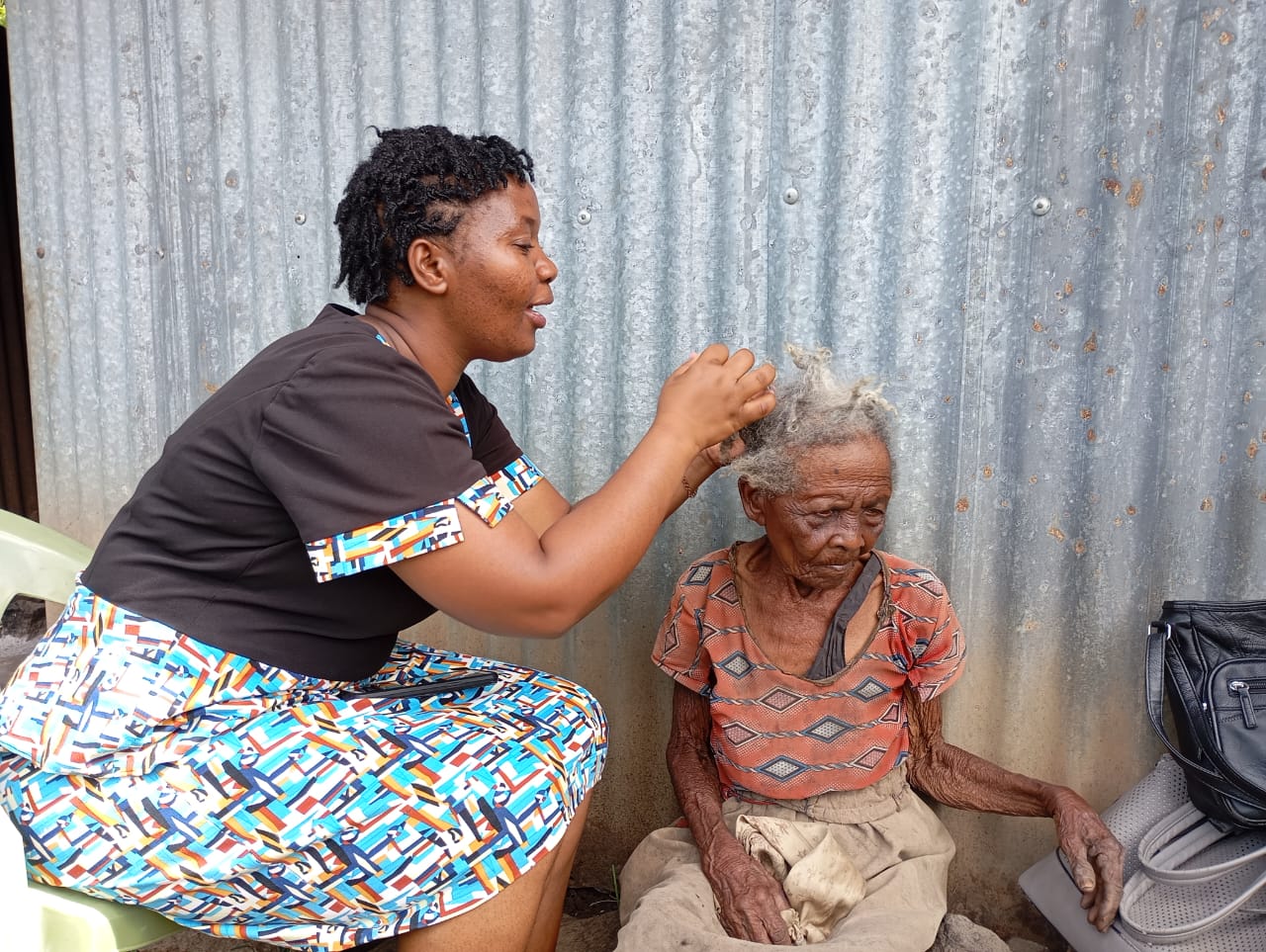
For the past eight years, Joyce Mumbi has committed her life to taking care of elderly men and women who have been neglected by their families, forcing them to spend their sunset years in solitude.
Mumbi, a social worker at Murang’a County Referral Hospital, consistently makes time out of her busy schedule to visit and support senior citizens in need.
Her passion project, the Kumbuka Wazee Initiative, mobilises resources and donations from well-wishers to meet the basic needs of these often-forgotten members of society.
A visit to some of the homes in Murang’a paints a grim picture of the miserable lives that the elderly people have to contend with, revealing that many of them lack basic human needs like decent shelter, clothing and food.
In her opinion, Mumbi observes that society has developed a worrying indifference toward the elderly, rejecting and viewing the elders as a burden and expecting their own relatives to take care of them.
“People no longer appreciate the old as it used to be in the older days and the value attached to them is long gone,” she said.
She adds that many people distance themselves from older relatives, particularly when their care becomes demanding due to illness or physical limitations.
“Many people don’t like associating themselves with elderly people and only a few are lucky to have their family looking after them,” she said.
“Some of the elderly people I have come across have no relatives and have become their only family. We have had to bury several in public cemeteries because they have nowhere to call home,” she added.
Mumbi revealed that in instances when those under her care fall ill, she has to take them to the hospital where they receive medical attention, even though sometimes she foots the bills by herself.
“Some of them are ailing from terminal illnesses and I have to make sure they have their drugs all through, even if I have to pay out of my pocket,” she said.
She says that family disputes and rural to urban migration are the two major factors that have led to the abandonment of aging people in the villages.
Mumbi has been able to establish a grassroots network with the neighbours who live near these elderly people, and they alert her whenever intervention is needed.
"They know I’m all they have. If someone falls sick, I’m the one they call even in the middle of the night to take them to the hospital," Mumbi said.
In future, Mumbi intends to establish a non-governmental organisation, which she says will give her a larger platform to bring on board more people to support her mission.
One of the beneficiaries of the Kumbuka Wazee Initiative is Pelisina Wanjiku from Matithi in the lower parts of Kiharu, aged over 100 years, who had been living in solitude until Mumbi came to her rescue.
Wanjiku has only one son and he is not in a position to take care of her and thus she relies on well-wishers for survival.
Mumbi often goes to check on her and give food stuffs to last her a few weeks till the next visit.
“She takes care of me like my own child and every time she visits I feel very happy because we spend some moments talking and laughing,” Wanjiku said.
Another beneficiary, Julia Wairimu, who is a mother of three cannot remember the last time she saw her children.
Wairimu has been living alone until Mumbi showed up and brought the much needed relief and hope.
“My children do not come to visit me. I do not remember the last time I saw them but I am lucky to have someone who looks after me,” she said.
With the food supplies from Mumbi, now Wairimu does not sleep hungry unlike before when she would go for days without a proper meal.
Mumbi says she has observed that there are many elderly people who need her help and she hopes to one day establish a home for the elderly.
The home will be for those who have been neglected
and can be sheltered and be taken care of, making sure they spend their
twilight years with dignity.











